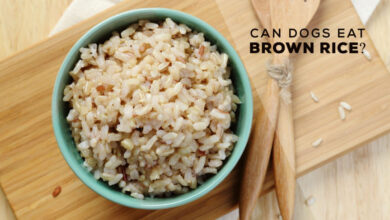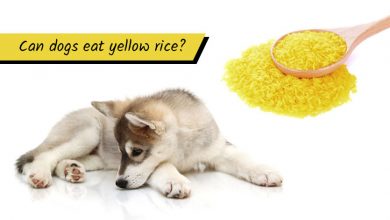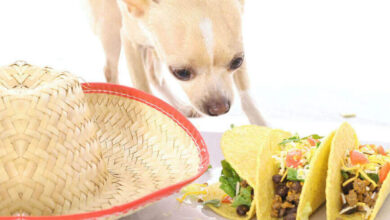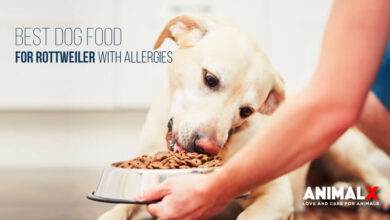Can Dogs Eat Quesadillas? Best 5 Alternatives Foods
Quesadillas are a traditional Mexican delicacy prepared with tortillas, cheese, and a variety of additional toppings. Nevertheless, can dogs eat quesadillas? Dogs should not eat quesadillas, according to the response.
Although cheese and tortillas are acceptable for dogs, the high fat and calorie content of quesadillas can create digestive troubles and health concerns in dogs.
Furthermore, several of the ingredients and condiments used to flavor quesadillas, such as onions, peppers, and cheese, can be hazardous to dogs. If you are concerned about your dog eating quesadillas or want to know if they can, avoid providing them to your dog.
So, whether you are searching for a new treat to indulge your dog with or you are just interested in what they can eat, keep reading!
What are Quesadillas?
A quesadilla is a Mexican delicacy made of a tortilla filled mostly with cheese, but also with spices, meats, and other toppings, and then grilled on a stove or griddle. Conventionally, a corn tortilla is used, but a flour tortilla can also be used.
Two tortillas are sandwiched by a layer of cheese to form a complete quesadilla. A half is a single tortilla loaded with cheese and folded into the form of a half-moon.
Nutritional Facts of Quesadillas
If we discuss the nutritional facts of Quesadillas, a single Quesadillas contains 490 kcal calories. Total fat is 28.78 grams (13.88 grams of Saturated fat, 3.87 grams of Polyunsaturated fat, and 9.6 grams of Monounsaturated fat ), 60 milligrams of Cholesterol, 1,345 milligrams of Sodium, Total Carbohydrate is 37.2 grams (2.4 grams Dietary Fiber, and 1.87 grams Sugars), and Protein is 20.02 grams. Besides, there are available 501 milligrams of Calcium, 2.77 milligrams of Iron, 216 milligrams of Potassium, 153 micro milligrams of Vitamin A, 6.2 milligrams of Vitamin C, and so on.

Can Dogs Eat Quesadillas?
Quesadillas are a delicious and nutritious meal for humans, but not for dogs. Although cheese and tortillas are acceptable for dogs, the high fat and calorie content of quesadillas can create digestive troubles and health concerns in dogs. Additionally, because quesadilla fillings are typically high in sodium and carbohydrate, they can cause blood glucose levels to spike in dogs if they’re not careful to monitor their pet’s activity level after eating.
Quesadillas can be a great source of protein, iron, and calcium. However, because they’re high in fat, calories, and sodium, they should not be fed to dogs regularly or on a regular basis. Dogs that have been treated with antibiotics or are recovering from surgery should also avoid eating quesadillas as they may disrupt their digestive system by upsetting the bacteria that normally helps break down food into nutrients your pet needs for energy production.
Can dogs eat quesadillas? – Dogs should not eat quesadillas, according to the response. Although cheese and tortillas are acceptable for dogs, the high fat and calorie content of quesadillas can create digestive troubles and health concerns in dogs.
Why are Quesadillas Bad for Dogs?
Because they are heavy in fat and calories, the contents of quesadillas might be detrimental to dogs. Dogs require a diet low in fat and high in protein. Let’s examine them more closely.
- The Allium plant family includes onions, leeks, chives, and garlic. These plants contain poisonous chemicals that can induce anemia in dogs. It is advised not to give your dog quesadillas made with onions or other allium plants.
- Peppers, particularly chili peppers, and bell peppers, contain chemicals that might irritate a dog’s digestive tract. Although eating peppers is not dangerous, it can induce gastrointestinal problems such as diarrhea, and vomiting.
- Although cheese contains a lot of fat, it is not hazardous to dogs. Large quantities of dairy products, on the other hand, might cause stomach issues. A high dairy content in your dog’s food might lead to flatulence (gas), loose feces, and diarrhea.
- Quesadillas frequently contain high levels of salt, which can be dangerous to dogs. Dogs require a low-sodium diet because too much salt can cause electrolyte imbalance and dehydration. It can potentially be lethal in extreme circumstances. If you do give your dog quesadillas, make definite to eradicate any extra salt before serving them.
- Quesadillas’ high-fat content might induce digestive problems and pancreatitis in dogs. Dogs do not need a high-fat diet and should only be fed low-fat meals.
- Many of the spices and ingredients used to flavor quesadillas, such as cumin, paprika, and chili powder might cause stomach upset in your dog. These spices might also make you vomit and have diarrhea. They may also cause gastrointestinal bleeding or upset stomach in extreme circumstances.
Read More: Can Dogs Eat Pork Rinds?
Can Dogs Eat Quesadillas or Any Risks?
Dogs should not consume quesadillas. Quesadillas’ high fat and calorie content might cause digestive troubles and health concerns in dogs. Furthermore, several of the spices and condiments commonly used to flavor quesadillas, such as onions, peppers, and cheese, can be hazardous to dogs. There are several hazards associated with its intake; some of them are as follows:
- Gastrointestinal Upset – Because of the high-fat content in quesadillas, your dog may experience stomach upset or diarrhea. Furthermore, the spices and ingredients used to flavor quesadillas might be upsetting to your dog’s digestive tract, resulting in vomiting or diarrhea.
- Sodium Toxicity – Eating excessive quantities of salt may be hazardous to dogs, causing electrolyte imbalance, dehydration, and even death. If you want to give your dog quesadillas, keep a close eye on their salt consumption to ensure they aren’t getting too much.
- Pancreatitis – High-fat meals, such as quesadillas, might raise your dog’s risk of pancreatitis. This significant medical illness if left untreated can be deadly.
- Blood Pressure & Higher Heart Rate – Quesadillas’ high-calorie content might raise your dog’s blood pressure and heart rate. This can result in health issues including heart disease and stroke.
- Anemia – Onions are members of the Allium plant family, which contains chemicals that can be poisonous to dogs. These substances in dogs can cause anemia.
- Skin Irritation – Capsaicin, the substance responsible for the fiery flavor of peppers, might irritate your dog’s skin and mucous membranes.
- Dehydration – Quesadillas frequently contain high levels of salt, which can cause dehydration in dogs when consumed in large quantities.
- Lactose Intolerance – Cheese is manufactured from dairy products and includes a lot of lactose, which dogs have a hard time digesting. This might result in digestive problems such as gas, diarrhea, and vomiting.
- Electrolyte Imbalance – An electrolyte imbalance caused by too much salt in your dog’s diet can be deadly if left unchecked.
- Diabetes – Quesadillas’ high-calorie content can also cause weight gain and obesity, increasing your dog’s chance of acquiring diabetes.
Read More: Best Dog Food for Autoimmune Diseases
Alternative to Quesadillas for Dogs
Can dogs eat quesadillas? We know the answer. Since we have restrictions on offering this to our dogs, it is important to know about alternative foods. Quesadillas are a great option for dogs and cats, but they’re not the only option. There are plenty of other foods that can be used to replace or supplement your pup’s meals. Here are some alternatives:
1. Tuna or Chicken
Tuna or chicken is an excellent source of protein and calcium, making it a great alternative to traditional sausage-based food. This is especially true if you’re trying to cut back on their meat consumption since it provides a healthy dose of protein without providing any fat. Tuna or chicken can also be cooked in many different ways, such as grilled, baked, or scrambled up with eggs. It tends to be quite filling and can serve as a complete meal for your dog.
2. Vegetables
Vegetables provide just as much nutrition as protein does for dogs, so you don’t have to worry about them eating too much at once. A bowl of mixed vegetables with some gravy is also easy on their stomachs — although it may taste better if you season it with something like peppermint oil! Vegetables include spinach, carrots, and celery sticks; these options won’t interfere with your pet’s diet in any way.
3. Hard Boiled Eggs
Hard-boiled eggs can be substituted for quesadillas when you need something quick and easy for your dog to eat. Hard-boiled eggs are nutritious and loaded with healthy fats, vitamins, and minerals that your dog needs to stay healthy. You can even give them a little salt if they prefer their eggs salty!
4. Fried Tortillas
Fried tortillas make a good alternative to quesadillas. They are lower in fat and calories than quesadillas, and your dog will love them! The downside is that they aren’t as tasty as quesadillas, so you’ll want to mix them with some meat or other treats. Learn more about tortillas as dog food.
5. Cooked Rice or Pasta
Cooked rice or pasta cut into pieces, then wrapped in a tortilla. You can add kibble if your dog doesn’t love this one. Learn more about brown rice as dog food and different types of yellow rice as dog food.
Final Thought
Quesadillas are not suitable for dogs and should never be fed during the day. Most human meals are not suitable for dogs in general, especially full dishes composed of a variety of ingredients.
Even if you create a quesadilla for your dog at home, it will not yield the results you desire as a dog owner. This was our today’s answer to the question – can dogs eat quesadillas?



